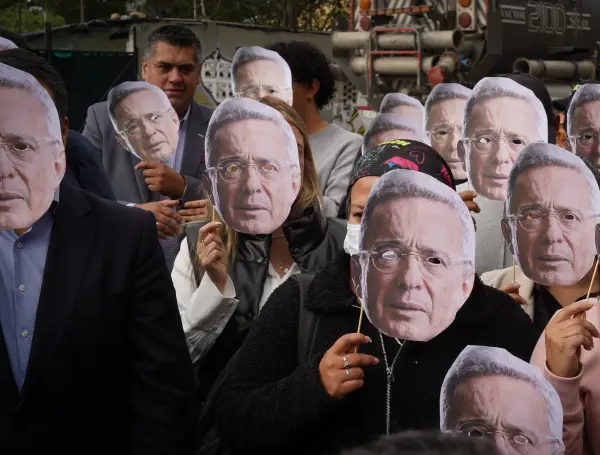Álvaro Uribe was sentenced, in the first instance, to 12 years of imprisonment under house arrest. That is the essence of the 1,114-page document in which Judge Sandra Liliana Heredia found the former president responsible for the crimes of procedural fraud and bribery in criminal proceedings. The sentence, which is longer than the nine years requested by the Prosecutor's Office, will not become final because the former president's defense team has announced it will appeal. The case will then be transferred to the Superior Court of Bogotá.
"Sentence Álvaro Uribe Vélez to the main penalties of 144 months or what is the same, 12 years in prison, a fine equivalent to 2,420 minimum wages, and disqualification from the exercise of public rights and functions, as the main sanction, of 100 months and 20 days, as criminally responsible for the crime of Bribery in criminal proceedings in homogeneous competition in heterogeneous competition with procedural fraud in homogeneous competition as set forth in the motivational part of the sentence, committed in the circumstances of time, manner and place described in the pagination," says the ruling known by EL TIEMPO.
In the document, Heredia ordered that the former president be immediately transferred to Rionegro, where he has his farm in Llanogrande, where he will serve house arrest and will be subject to the respective controls by the authorities."Based on the jurisprudential criteria and knowing that Álvaro Uribe Vélez deserves house arrest, it should be noted that it is necessary for the accused to begin the execution of his sanction before the decision becomes final, as the nominal requirements of necessity are far exceeded, as will be analyzed," the judge explained.
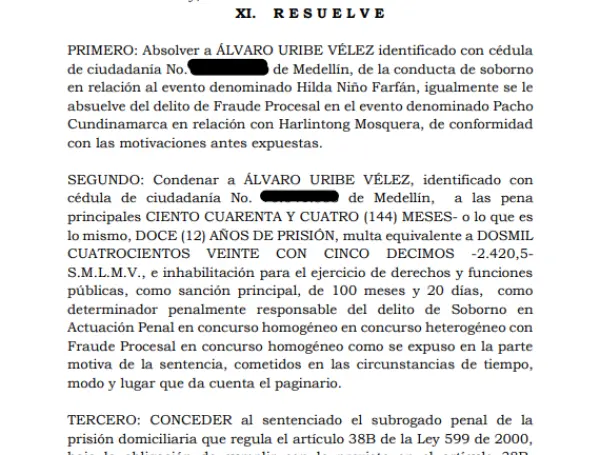
The decision sparked controversy because high court precedents establish that when the defendant does not pose a danger to society or pose a flight risk, and has appeared in court, he or she may defend himself or herself in freedom until the verdict is final. A fine of 2.4 billion pesos was also imposed for both offenses.
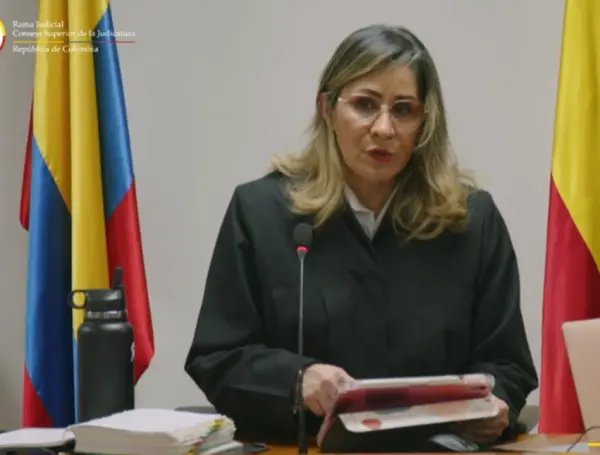
"We have that the immediate deprivation of liberty is necessary to ensure the preservation of peaceful and harmonious coexistence among citizens. This measure not only has a deterrent and intimidating effect that prevents the commission of crimes, but also prevents the negative perception in society that people can continue enjoying their freedom, despite a conviction, when the requirements for this are not met and the presumption of innocence has already been dismissed in the first instance; especially when it comes to a person who enjoys public and social recognition, a reference for large circles in the country, hence allowing him to continue exercising his free movement, despite the transgression caused, would conceive the erroneous idea that equality before the law does not preexist in the legal system, ergo, to sustain the deterrent power of the rule of law and confidence in institutions, its swift action becomes imperative detention," said the judge when delving into the need to send him to Llanogrande.
House arrest
Regarding why she granted him the home-based detention measure, the judge explained that the now-sentenced man met the suitability and proportionality requirements to be eligible for this benefit.
With this conviction, the first against a former president in the country's recent history, Uribe could not be elected to public office again, since the Constitution establishes this limitation for those convicted of common crimes.
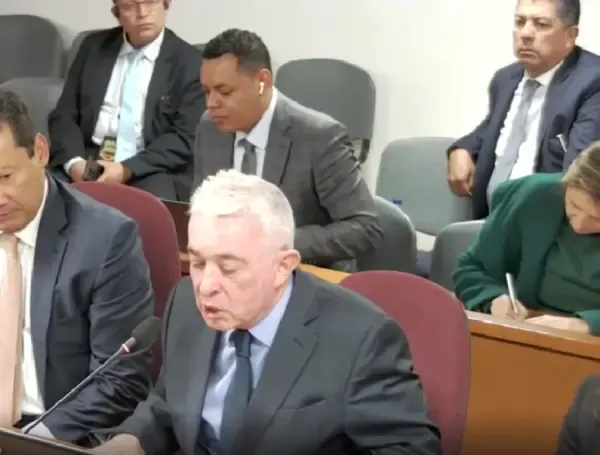
Among these, the sanction for the two crimes contemplates a minimum sentence of six years, one of the legal parameters for granting house arrest. The former president, according to the sentence, will not be able to change his residence without authorization , he must appear before the authorities when requested, and he will have to allow entry into his residence to the public servants in charge of guarding that he is complying with Heredia's order.
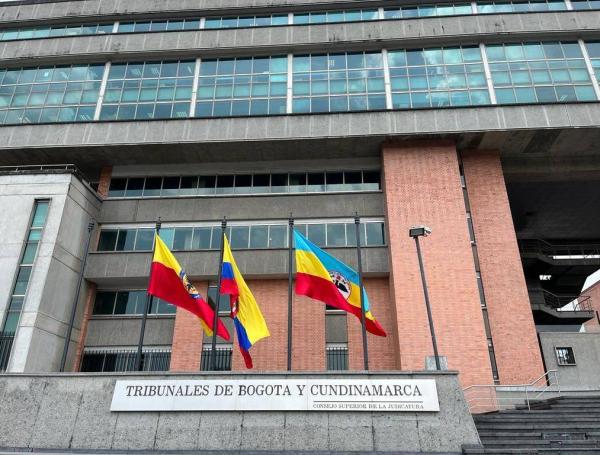
Regarding the ineligibility to hold public office, the court established a period of 100 months and 20 days, which is just over eight years. As long as he remains in custody, he will not be able to hold public office.
The sense of failure
In an 11-hour hearing, Heredia explained some of the details of his ruling, which is made up of more than 1,114 pages and will serve to support the former president's defense attorneys in the coming days in their appeal against two of the three charges brought against him by the Prosecutor's Office, which is that Uribe was ultimately acquitted of simple bribery.
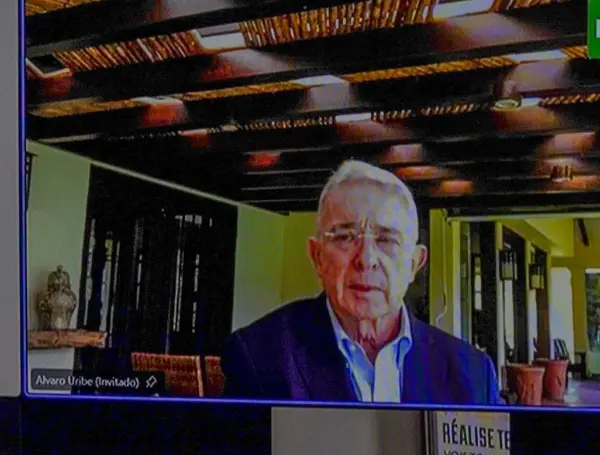
The history of this criminal case, considered the most important in recent years, dates back to 2018, when the Supreme Court decided to open an investigation into him for allegedly attempting, through Diego Cadena, to bribe witnesses to testify in his favor, clearing him of any ties to paramilitaries.
Uribe pleaded not guilty to such accusations from the outset, and in 2020 he resigned from the Senate. The case was then transferred from the Supreme Court to the Prosecutor's Office, which, after two requests for dismissal, ultimately brought him to trial. For 67 days, various witnesses appeared before Judge Sandra Liliana Heredia's office to give their versions of the case, which led to the first-instance verdict.
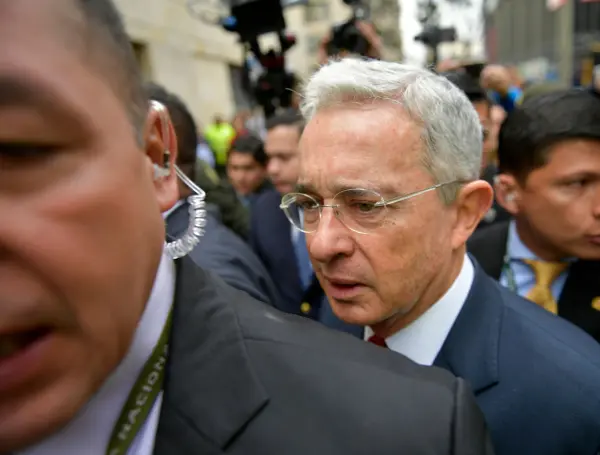
"The Attorney General's Office has proven the punishable conduct and participation as a determinant of Mr. Álvaro Uribe Vélez in the crimes of procedural fraud in a homogeneous group and bribery in criminal proceedings with respect to witnesses Juan Guillermo Monsalve, Eurídice Cortés Velasco and Carlos Enrique Vélez," explained the judge, in charge of the 44th Criminal Court of Knowledge.
In dialogue with EL TIEMPO, criminal lawyer Jaime Granados stressed that they have been studying the appeal since Monday, and that it should be emphasized that his client maintains the presumption of innocence because there is no definitive ruling."He has been very active in his defense, with all due respect, setting an example, and with all the confidence that the appeal will prevail, and justice will shine because Colombia is a country of institutions," said the lawyer.
